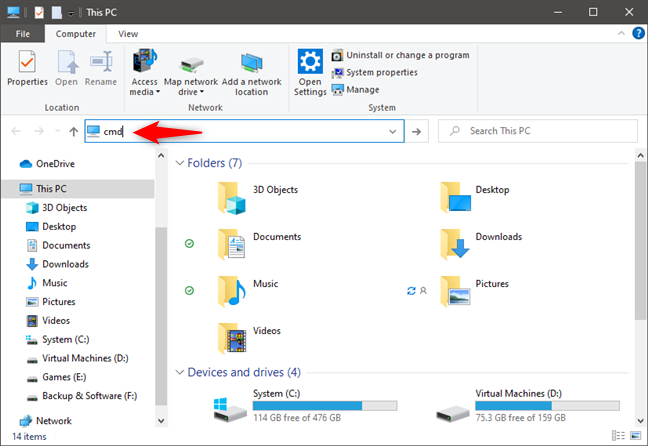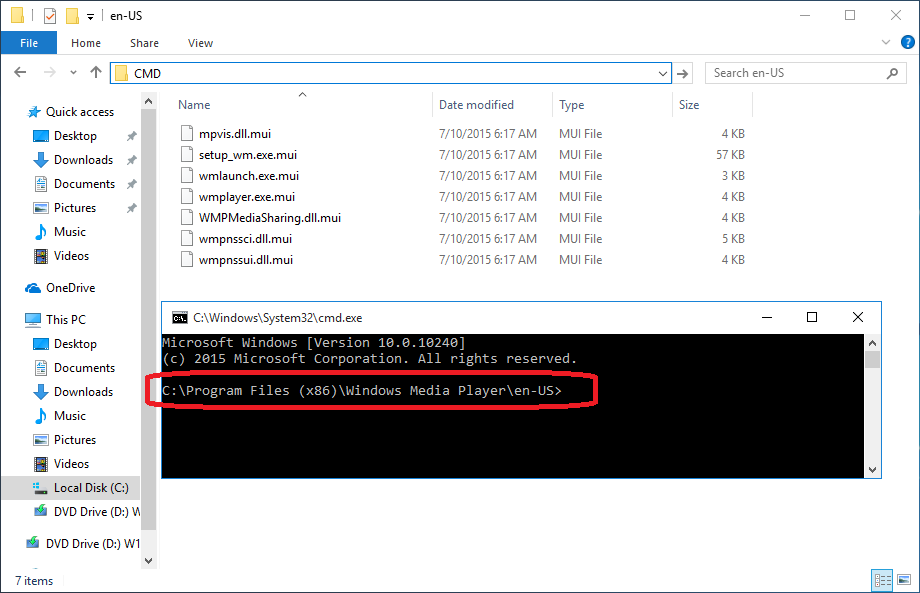

- #UNZIP COMMAND .EXE#
- #UNZIP COMMAND ARCHIVE#
- #UNZIP COMMAND WINDOWS 8#
- #UNZIP COMMAND ZIP#
- #UNZIP COMMAND DOWNLOAD#
Since wildcard characters normally match (' /') directory separators (for exceptions see the option -W), this option may be used to exclude any files that are in subdirectories.
#UNZIP COMMAND ARCHIVE#
Again, be sure to quote expressions that would otherwise be expanded or modified by the operating system.Īn optional list of archive members to be excluded from processing. See -v in OPTIONS below.) Regular expressions (wildcards) may be used to match multiple members, as stated above. (VMS versions compiled with VMSCLI defined must delimit files with commas instead.
#UNZIP COMMAND .EXE#
exe suffix (if any) explicitly.Īn optional list of archive members to be processed, separated by spaces.
#UNZIP COMMAND ZIP#
Note that self-extracting zip files are supported, as with any other zip archive just specify the. (Be sure to quote any character that might otherwise be interpreted or modified by the operating system, particularly under Unix and VMS.) If no matches are found, the specification is assumed to be a literal filename and if that also fails, the suffix. To specify a verbatim left bracket, the three-character sequence " " has to be used. If an exclamation point or a caret (' !' or ' ^') follows the left bracket, then the range of characters within the brackets is complemented (that is, anything except the characters inside the brackets is considered a match). Matches any single character found inside the brackets ranges are specified by a beginning character, a hyphen, and an ending character. Matches a sequence of 0 or more characters

Wildcard expressions are similar to those supported in commonly used Unix shells ( sh, ksh, csh) and may contain: Only the filename can be a wildcard the path itself cannot. If the file specification is a wildcard, each matching file is processed in an order determined by the operating system (or file system). Unzip accepts the following arguments: file Both zip and unzip are compatible with archives created by PKWARE's PKZIP and PKUNZIP programs for MS-DOS. A companion program, zip, creates zip archives. The default behavior (with no options) is to extract into the current directory (and possibly the subdirectories below it) all files from the specified zip archive. ::ExtractToDirectory(' C:\input.Unzip lists, tests, or extracts files from archives of the zip format, which are most commonly found on MS-DOS and Windows systems.

Unzip an archive from the command line in Windows: PS C:\> Add-Type -A 'System.IO.Compression.FileSystem' ::CreateFromDirectory(' C:\folder', ' C:\output.zip') Zip all files in a folder from the command line in Windows: PS C:\> Add-Type -A 'System.IO.Compression.FileSystem' Starting from PowerShell 3.0 (Windows 8), it is possible to Zip folders and Unzip archives in Windows from the command line using the special methods in PowerShell. Unzip an archive from the command line in Windows: PS C:\> Expand-Archive -Path 'C:\input.zip' -DestinationPath 'C:\output' PowerShell 3.0 (Windows 8) and greater Zip all files in a folder: PS C:\> Compress-Archive -Path 'C:\folder\*' -DestinationPath 'C:\output.zip' Zip a file or a folder from the command line in Windows: PS C:\> Compress-Archive -Path 'C:\input' -DestinationPath 'C:\output.zip' Starting from PowerShell 5.0 (Windows 10), it is possible to Zip files and folders and Unzip archives in Windows using Compress-Archive and Expand-Archive PowerShell commands. To determine a version of PowerShell on your machine, execute: PS C:\> $PSVersionTable.PSVersion PowerShell 5.0 (Windows 10) and greater
#UNZIP COMMAND DOWNLOAD#
NET Framework 4.5 installed by default, it is possible to use a kind of zip and unzip commands from the command line.Ĭool Tip: Download a file using PowerShell! Read more → Zip/Unzip From The Command Line In Windowsĭepending on the version of PowerShell there are different ways to Zip files and folders and Unzip archives in Windows from the command line.
#UNZIP COMMAND WINDOWS 8#
Starting from Windows 8 with PowerShell 3.0 and.

In the past it was not possible to create Zip files and Unzip archives in Windows without installing third-party programs like WinZip and 7-Zip.īut now Windows has a built-in capability to Zip files and folders and Unzip archives from the command line using PowerShell.


 0 kommentar(er)
0 kommentar(er)
